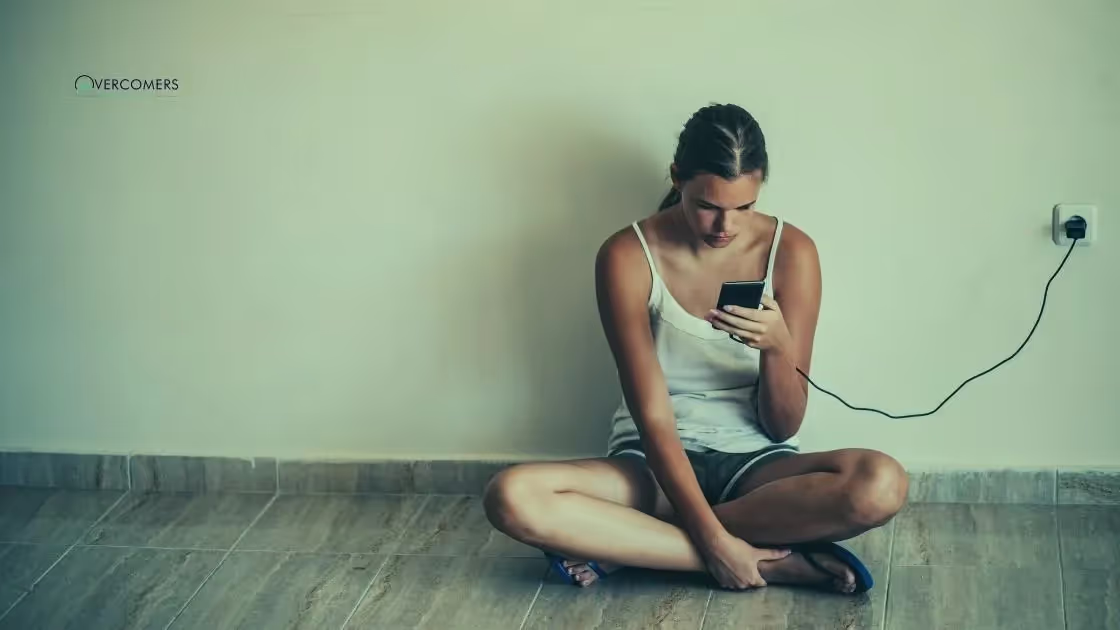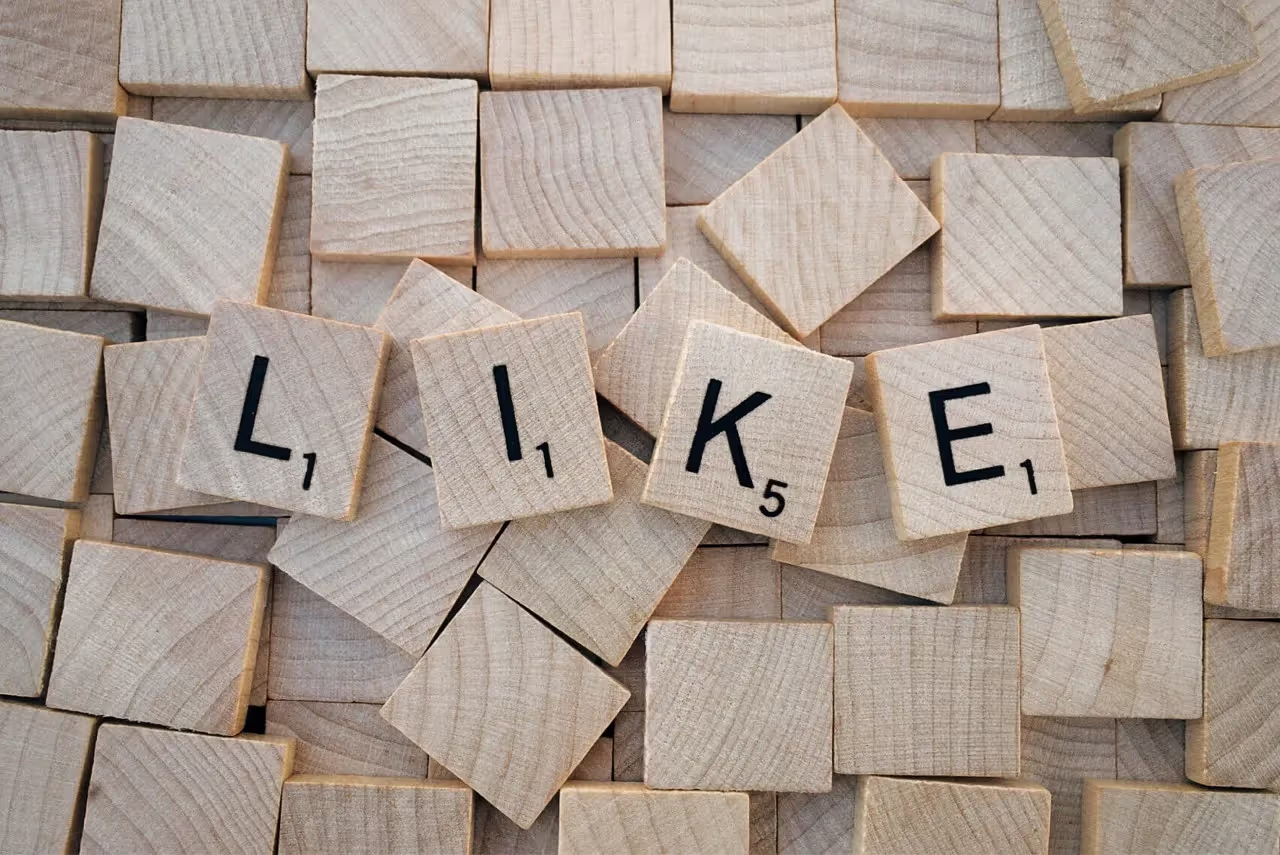We live in the digital age, the golden age of information.The world is connected in a way it never has been in all of human history.And while we enjoy all...

We live in the digital age, the golden age of information.
The world is connected in a way it never has been in all of human history.
And while we enjoy all the benefits technology provides, studies show that social media can also increase anxiety, depression, and stress.
Social media anxiety is a growing problem for people of all ages.
For many, social media is often a blessing and a curse.
On one side, social media connects family and friends, entertains, and informs us.
But on the other side, social media anxiety aggravates our fears, worries, insecurities, and stress.
Let's look together at different ways of dealing with social media anxiety.
Social media anxiety often makes you feel pressured.
Those who suffer from social media anxiety may feel both peer pressure (from without) and self-induced pressure (from within).
Social media anxiety can make you feel peer pressured to be like others.
You may feel pressured to enjoy the same music or TV shows, wear similar clothes or attend popular events.
Social media anxiety has a nasty way of making you feel like you're not good enough, don't have enough, or don't do enough.
Another common sign of social media anxiety is feeling pressure to post attractive, fun, or successful things about yourself.
Social media is often about presenting a persona or picture of yourself to others, in hopes of gaining approval and admiration.
And as a result, social media anxiety makes you feel pressured to get as many likes or comments as possible.
You may ask yourself- Why didn't my picture get more likes? I looked good and I was doing something cool.
Feeling the near-constant pressure of social media anxiety can cause a host of other mental, emotional and physical problems.
Whoever thought that being connected with others could make you feel so disconnected?
Sometimes social media can make you feel like you're all alone in a room full of people.
Feeling alienated or alone is often a sign of social media anxiety.
For example, you might see friends or family at a party to which you weren't invited.
This might cause you to doubt yourself or even your relationships.
Ever seen a comment to a post about a party that read- "I wish I was there…"
Another example would be when you notice your friends have the money to eat at fine restaurants and attend expensive concerts, but you don't.
You know why you weren't invited.
You're happy for them, but feel jealous and envious at the same time.
Social media anxiety has a way of making you feel left out.
Sometimes a simple post on social media can make you feel like an outsider, even when you're not.
Feeling replaceable is a sign of social media anxiety.
Ever been friends with someone on social media who has like a thousand-plus friends?
And you have eighty-eight friends.
It's easy to ask yourself- With that many friends, where do I rank?
And if you don't like a post or comment quickly enough about it, are you as good a friend as others?
Social media anxiety makes you feel expendable, replaceable, and sometimes downright non-existent.
Let's face it- a blessing of social media is that we can keep in touch with friends who move across the country.
But what happens when a year goes by and you don't see each other?
And all you see on social media is them hanging out in person with new friends who are actually there.
Social media anxiety has a way of making you feel left behind and forgotten.
Social media anxiety can make you feel like a memory, and your friendships a distant memory.

Feeling smothered is a sign of social media anxiety.
When you're linked through social media, you're pretty much linked 24/7.
Your friends and family can message you anytime.
You're always available, even when you don't want to be.
This can be true of partners, friends, family members, and mere acquaintances.
Social media anxiety often makes you feel like you don't have any real private time.
Feeling like anybody can message you at any time, and that you're under a time crunch to respond can create unwarranted anxiety and stress.
Ever get a message and don't feel like responding immediately?
But if you don't, you wonder if the other party will be offended.
Or if they see you online they might wonder why you haven't taken time for them.
Social media anxiety complicates relationships because it leaves you second-guessing.
When you speak in person and spend quality time together, there's no second-guessing motives or gauging timelines for a response.
Feeling vulnerable is another sign of social media anxiety.
The internet has made sharing pictures and information easy- perhaps too easy.
Many people live in fear of certain pictures or information being spread over social media.
We live in a world where employers may look at your social media more carefully than your resume.
Social media anxiety includes the fear of being exposed.
Just like anybody can message you, anybody can post pictures or information about you.
Ever make somebody angry and they take it out on you over social media?
Putting people on blast is today's trendy form of vengeance.
Social media anxiety makes you feel fear, anxiety, stress, and distrust- all negative emotions.
For many, interactions through social media replace actual…socializing.
Social anxiety disorder is more common than you think and causes undue psychological stress and anxiety.
Don't ignore the signs of social media anxiety.
Our dependence on social media is often a destructive habit, difficult to break.
And yet, destructive habits can be broken with the help of a licensed professional counselor.
Social media anxiety is a serious condition, in some cases involving a serious addiction to your technological devices.
Get professional help from a licensed counselor and gain freedom from social media anxiety.
It's important that you feel comfortable discussing personal matters with your therapist in order to open up and get more out of therapy sessions; therefore finding someone who meets certain criteria like experience level, expertise areas, and personality is key when selecting a therapist who can give meaningful feedback about how best handle issues related to anxiety or other mental health concerns.
Addressing anxiety is crucial because it can significantly impact your quality of life and overall well-being. Left untreated, anxiety can lead to more severe mental health issues, relationship problems, and difficulty functioning in daily life.
The duration of anxiety counseling varies for each individual, depending on the severity of their anxiety and their progress in therapy. Our therapists will regularly assess your progress and adjust your treatment plan as needed.
Yes, Medicaid provides insurance coverage for therapy services specifically designed to help individuals struggling with anxiety, depression, and other mental health conditions.
Other activities which have been found helpful in reducing both immediate feelings of anxiousness and long-term anxieties associated with chronic disorders include yoga, journaling, nature walks, art therapy, volunteering, and other low-stress activities. Additionally, developing a healthy lifestyle incorporating adequate sleep, physical activity, and nutritious meals can help reduce overall stress levels.
Ignoring anxiety can exacerbate symptoms and make it more challenging to manage over time. This can result in a negative impact on your personal, professional, and social life, leading to feelings of isolation and even depression.